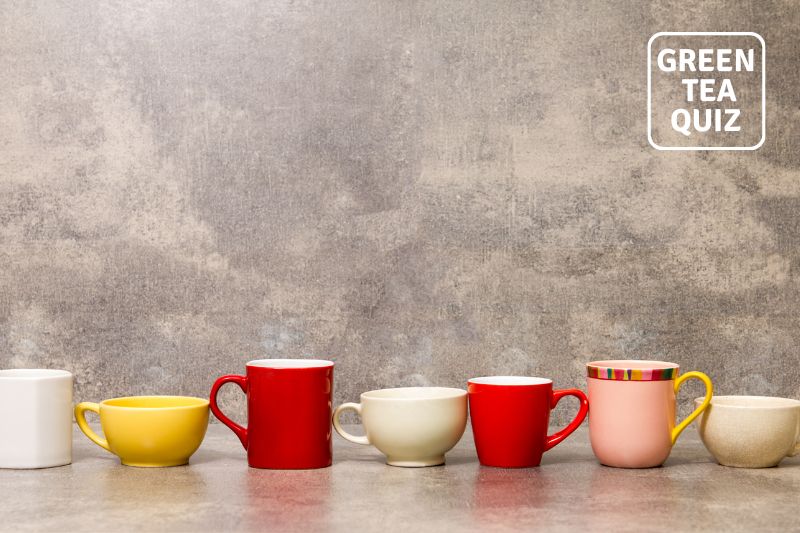High blood pressure is an often deadly but treatable condition that can be improved with green tea by helping sufferers reduce their systolic and diastolic numbers, maintaining alertness, and improving their overall health simply by adding a cup of green tea to their meals or any other time of the day. Organic compounds found in green tea interact in our bodies to improve heart and arterial health naturally, with medical research to confirm these claims.
High Blood Pressure: The Silent Killer
Approximately 1/3 of American adults suffer from high blood pressure, also known as hypertension, most without even knowing. Dubbed a “silent killer,” hypertension has very few symptoms until you get into a dangerously high range. However, sustained moderate hypertension can cause heart disease, stroke, angina, arterial plaque build-up, heart attack, and a slew of other conditions, all without symptoms while the damage is being done. On the flip side, hypertension can also be caused by these health issues, creating a vicious cycle that raises your blood pressure continuously. The majority of these conditions are fatal if left untreated. Depending on the root cause of your hypertension, green tea may help bring your blood pressure numbers down to a more reasonable range.

Amazing Catechins Keep Your Heart Healthy!
Green teas contain organic compounds known as polyphenols, which are a type of antioxidant. Polyphenols can be broken down into many subcategories, including a group called flavonoids, which contain catechins. Catechins are tiny powerhouse antioxidants found in green tea that destroy free radicals and improve your vascular system.
Catechins help to improve endothelium-dependent vasodialation, which means it helps to increase the size of your arteries, lowering your blood pressure. Arteries narrow with age when the endothelium lining of arteries cease to function properly. Because of this, different medical conditions such as plaque build-up can occur, which in turn raises blood pressure.
To get the most from catechins, be sure to steep your tea slightly longer than you normally would. The longer the tea steeps, the more catechins it will contain.
Studies Show Green Tea Helps Lower Blood Pressure
As reported in Time Magazine, the British Journal of Nutrition suggests green tea may lower hypertension after a 12 week study was conducted. According to X.-H. Huang et al, who compiled data from 25 random studies through the Cochrane Controlled Trials Register, “blood pressure was lower(ed) by 2.6 mmHg systolic and 2.2 mmHg diastolic.” Added to your daily diet, green tea can also help prevent death from hypertension, and is especially great for helping people with a systolic of 130 or over reduce their blood pressure. Green tea can lower chance of mortality by up to 8% from hypertension-related causes. These numbers may seem small, but in a group of 1,000 people, 80 people could still be alive because they added green tea to their diet.

Zen Out With Green Tea to Lower Blood Pressure
One of the great unstated benefits of green tea is on mental health, which in turn helps your physical health. Whether it’s the smell of the green tea, or a relaxing afternoon cup while reading a book, or even the simple act of consuming a cup of green tea has a stress-reducing effect on most people. Combined with the physical effects from catechins, this double-hitter is great for reducing stress-induced hypertension.

Small Diet Changes Create Big Results!
Adding green tea to your diet may mean removing sugary drinks from your diet such as sodas or juices that are high in sugar or corn syrup, which is great for your overall health and may lead you to lose weight. For some, simply losing 10 pounds can bring down blood pressure into a healthier range. Green tea sweetened with honey or the stevia plant reduces your overall sugar intake.
Sugar intake is associated with an increased risk of metabolic syndrome, which raises your blood pressure along with many other negative effects. For years researchers focused on sodium intake being a main source of high blood pressure but now are recognizing sugar as a culprit. Reducing your intake of sugary drinks by replacing them with green tea is a great way to reduce your blood pressure and live a healthier life.
Not Just a Snake Oil Myth, Green Tea Can Really Lower Blood Pressure
Overall, green tea is a great choice for hypertension sufferers, helping to correct root causes of high blood pressure:
- Reduce stress levels
- Reduce sugar intake and weight
- Improve arterial size and heart function
- Increase mental clarity
Many studies have been performed showing the effectiveness of green tea on health, but green tea has been used for centuries by Japanese who knew the health benefits before our modern societies started conducting tests. Japanese people have one of the arguably healthiest diets in the world, and the best life expectancy in the world, mainly due to diet, which includes a healthy amount of green tea. In fact, green tea is so popular you can find many other foods in green tea flavors. Not only is green tea delicious, it’s a great way to increase your overall health and life expectancy by helping to take care of your vascular system and decrease blood pressure and the work your heart has to do on a daily basis.
This article was originally published on T-Ching where my work is featured

Get Free Bonus Books

Sign up for free to the Green Tea Club to get advice and exclusive articles about how to choose Japanese Tea, and tips, tricks, and recipes for enjoying Japanese tea.
About the author
Kei Nishida
Author, CEO Dream of Japan
Certification: PMP, BS in Computer Science
Education: Western Washington University
Kei Nishida is a passionate Japanese green tea connoisseur, writer, and the founder and CEO of Japanese Green Tea Co., a Dream of Japan Company.
Driven by a deep desire to share the rich flavors of his homeland, he established the only company that sources premium tea grown in nutrient-rich sugarcane soil—earning multiple Global Tea Champion awards.
Expanding his mission of introducing Japan’s finest to the world, Kei pioneered the launch of the first-ever Sumiyaki charcoal-roasted coffee through Japanese Coffee Co. He also brought the artistry of traditional Japanese craftsmanship to the global market by making katana-style handmade knives—crafted by a renowned katana maker—available outside Japan for the first time through Japanese Knife Co.
Kei’s journey continues as he uncovers and shares Japan’s hidden treasures with the world.
Learn more about Kei




